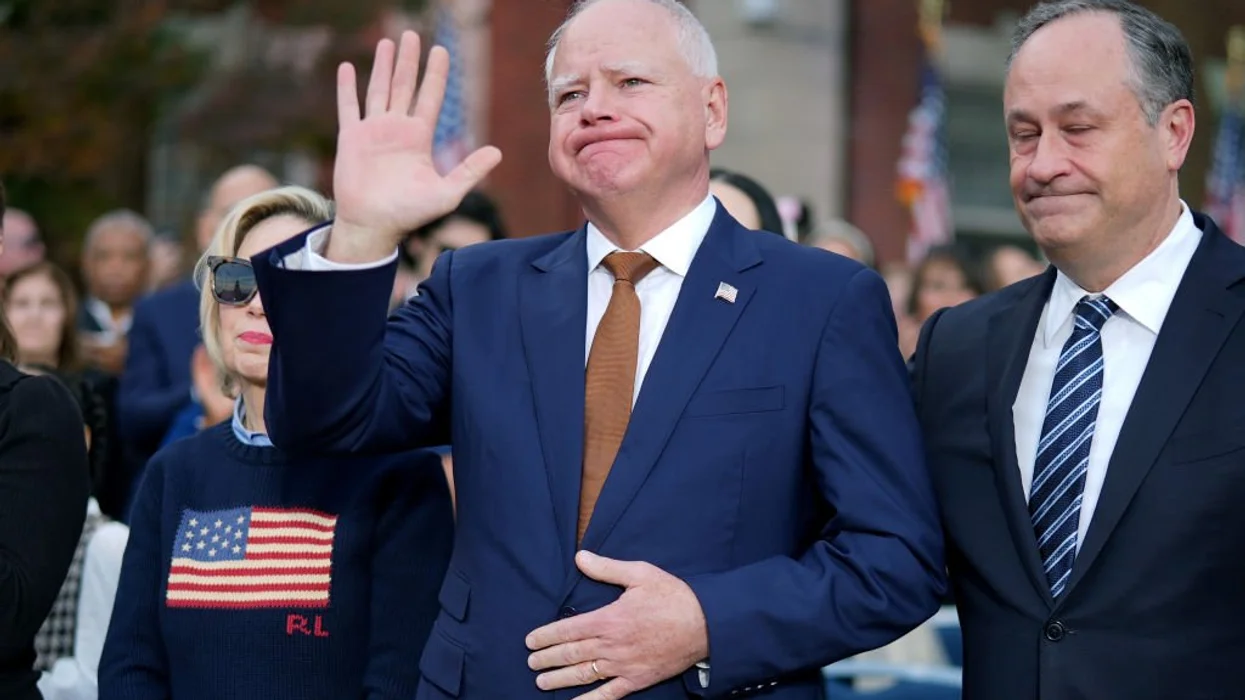A new study from the University of Cambridge has good news for proponents of police officers wearing body cameras, suggesting the cameras do reduce use-of-force incidents and complaints from the public.
At the same time, the study warned against sweeping policy changes for law enforcement across the U.S., just as the federal government is planning to spend millions to equip departments across the country with the devices.
In what it called the first scientific study of the issue, the British university’s Institute of Criminology found that after the Rialto, California, police department began using body cameras, use of force by police fell 59 percent and complaints from the public dropped 87 percent from the previous year.
 New York Police Department Officer Joshua Jones wears a body camera during a mock traffic stop to demonstrate how the cameras will be used, during a press conference Dec. 3, 2014 in New York City. The NYPD is beginning a trial exploring the use of body cameras, where officers in three different precincts will begin wearing them during patrols. (Andrew Burton/Getty Images)
New York Police Department Officer Joshua Jones wears a body camera during a mock traffic stop to demonstrate how the cameras will be used, during a press conference Dec. 3, 2014 in New York City. The NYPD is beginning a trial exploring the use of body cameras, where officers in three different precincts will begin wearing them during patrols. (Andrew Burton/Getty Images)
In response to the Missouri grand jury's decision not to indict a police officer in the shooting death of 18-year-old Michael Brown, the Obama administration earlier this month announced a three-year$263 million package on community policing, including a 50 percent match for state and local police departments that purchase body cameras, for a total of $75 million to purchase 50,000 cameras.
But the effectiveness of cameras has come under some question after a grand jury in New York City similarly opted against indicting a police officer in the death of Eric Garner after he was placed in a chokehold in Staten Island, despite witness video of the incident.
“The ‘preventative treatment’ of body-worn-video is the combination of the camera plus both the warning and cognition of the fact that the encounter is being filmed,” Barak Ariel of Cambridge’s Institute of Criminology said in a statement. “In the tragic case of Eric Garner, police weren’t aware of the camera and didn’t have to tell the suspect that he, and therefore they, were being filmed.”
The Cambridge study was conducted with the cooperation of Rialto Police Chief Tony Farrar. It covered 2012 incidents, but the results were just announced this week. Rialto has more than 100,000 residents.
The study says that cameras create a “self-awareness” for all parties involved, which would modify behavior since an altercation would not be one person’s word against another.
However, the researchers warned against a sweeping change in which police departments are “steamrolled” into using cameras, based on limited results from one city over one year.
The study said there are still questions about how the digital video would be used as evidence and how it will affect prosecutions, as well as well as how prepared departments are for the storage technology.
“Rialto is but one experiment; before this policy is considered more widely, police forces, governments and researchers should invest further time and effort in replicating these findings,” researcher Alex Sutherland said.
Though the cameras are held up as a means to protect the public, Sonia Roubini, a paralegal with the ACLU’s Speech, Privacy, and Technology Project, said police departments must be transparent in how the cameras are used.
“Transparency is the only way that the public can be sure that body cameras will be used as a check against the abuse of police power, as opposed to yet another tool to increase that power,” Roubini wrote in a blog post last week.
In analyzing a number of police department policies, she said, some “were hazy on whether or not use of the cameras should be voluntary. Still others did not specify that the cameras should be on during all calls of duty. In other words, these policies seemed to provide insufficient guidelines for ensuring that the technology would both protect the public against police misconduct, and protect police against false accusations of abuse.”
The ACLU in 2013 put out a paper raising privacy concerns over the use of police body cameras.
In Rialto, the study said every $1 spent on cameras and storage technology saved about $4 in complaint litigation, while the storage technology is getting less expensive.

 New York Police Department Officer Joshua Jones wears a body camera during a mock traffic stop to demonstrate how the cameras will be used, during a press conference Dec. 3, 2014 in New York City. The NYPD is beginning a trial exploring the use of body cameras, where officers in three different precincts will begin wearing them during patrols. (Andrew Burton/Getty Images)
New York Police Department Officer Joshua Jones wears a body camera during a mock traffic stop to demonstrate how the cameras will be used, during a press conference Dec. 3, 2014 in New York City. The NYPD is beginning a trial exploring the use of body cameras, where officers in three different precincts will begin wearing them during patrols. (Andrew Burton/Getty Images)





